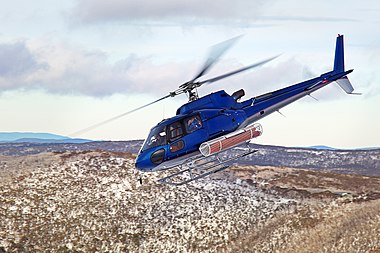Portal:European Union
Introduction
The European Union (EU) is a supranational political and economic union of 27 member states that are located primarily in Europe. The union has a total area of 4,233,255 km2 (1,634,469 sq mi) and an estimated total population of over 449 million. The EU has often been described as a sui generis political entity combining the characteristics of both a federation and a confederation. Containing 5.8% of the world population in 2020, EU member states generated a nominal gross domestic product (GDP) of around US$16.6 trillion in 2022, constituting approximately one sixth of global nominal GDP. Additionally, all EU states except Bulgaria have a very high Human Development Index according to the United Nations Development Programme. Its cornerstone, the Customs Union, paved the way to establishing an internal single market based on standardised legal framework and legislation that applies in all member states in those matters, and only those matters, where the states have agreed to act as one. EU policies aim to ensure the free movement of people, goods, services and capital within the internal market; enact legislation in justice and home affairs; and maintain common policies on trade, agriculture, fisheries and regional development. Passport controls have been abolished for travel within the Schengen Area. The eurozone is a group composed of the 20 EU member states that have fully implemented the economic and monetary union and use the euro currency. Through the Common Foreign and Security Policy, the union has developed a role in external relations and defence. It maintains permanent diplomatic missions throughout the world and represents itself at the United Nations, the World Trade Organization, the G7 and the G20. Due to its global influence, the European Union has been described by some scholars as an emerging superpower. In 2012, the EU was awarded the Nobel Peace Prize. The United Kingdom became the only member state to leave the EU, in 2020; ten countries are aspiring or negotiating to join it. (Full article...) Selected article The 1985 Schengen Agreement is an agreement among European states which allows for the abolition of systematic border controls between the participating countries. It also includes provisions on common policy on the temporary entry of persons, the harmonisation of external border controls and cross-border police co-operation. A total of 30 countries – including all European Union states and three non-EU members Iceland, Norway, and Switzerland – have signed the agreement and 26 have implemented it so far. The Republic of Ireland and the United Kingdom only take part in the police co-operation measures and not the common border control and visa provisions. Border posts and checks have been removed between Schengen countries and a common 'Schengen visa' allows tourist or visitor access to the area. The agreement was originally signed on 14 June 1985, by five European countries (Belgium, France, Germany, Luxembourg, and the Netherlands). It was signed aboard the ship Princesse Marie-Astrid on the Moselle River, near Schengen, a small town in Luxembourg on the border with France and Germany. Selected picturePhoto: Benjamint444 The Eurocopter AS350 (AStar in North America) is a single-engined light helicopter originally manufactured by Aérospatiale (now part of Eurocopter Group). It is a popular model, being used worldwide in many civilian, law enforcement, and military organisations. One variant became the first helicopter ever to land on Mount Everest.
Did you know?... that the presidency of the EU Council rotates every half year? ... that the EU parliamentary election is the world's biggest transnational election? ... that the European Union was awarded the Nobel Peace Prize in 2012? Selected cityLisbon is the capital and largest city of Portugal. It is the seat of the district of Lisbon and capital of Região Lisboa (Lisbon Region). Lisbon municipality has a population of 564,477, and the Lisbon Metropolitan Area in total has around 2,800,000 inhabitants, the largest urban aglomeration of Portugal. Lisbon Region is the wealthiest region in Portugal and it is well above the European Union's per capita GDP average. Lisbon hosts two important European Union agencies namely, the European Monitoring Centre for Drugs and Drug Addiction (EMCDDA) and the European Maritime Safety Agency (EMSA). The CPLP (Community of Portuguese Language Countries), is also headquartered in Lisbon. General imagesThe following are images from various European Union-related articles on Wikipedia.
TopicsFeatured contentFeatured articles
Featured lists
Featured contentGood articles
CategoriesRelated portalsAssociated WikimediaThe following Wikimedia Foundation sister projects provide more on this subject:
Discover Wikipedia using portals |



































































